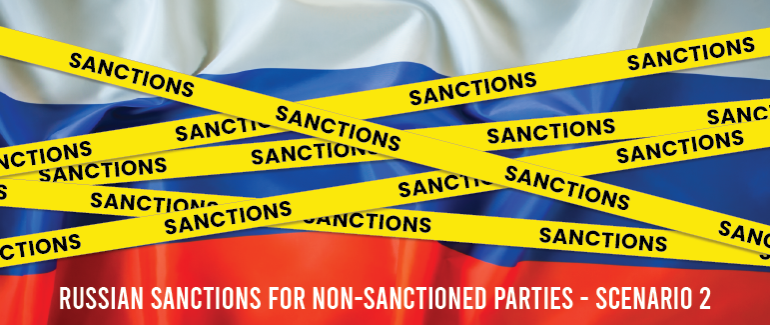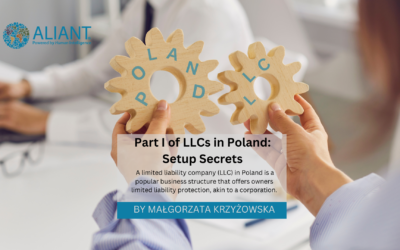We present to you the 4th scenario of the 5-part series on “Conducting International Business and Commercial Transactions for Non-Sanctioned Parties: a 4 Scenarios Case Study”.
In this final scenario we discover the situation involving a non-sanctioned business agent for a Russian transacting Oligarch who owns properties and or assets in England.
The information provided in this article does not, and is not intended to, constitute legal advice. Instead, these illustrations and the discussion that follows are intended to illustrate the complexities of the business and legal issues now at the forefront of cross-border business in Europe, Switzerland, the UK, the United States, Canada, Japan and Australia now that the 2022 Russian sanctions have turned once-straightforward business dealings between Russianentities and non-Russian counterparts into anything-but-simple high-stakes legal navigational puzzles, as well as to provide some general observations about the attendant legal issues.
I. FOURTH SCENARIO – PRACTICAL ANALYSIS
The fourth scenario to be discussed will be consists of the following:
Fourth, as a final illustration, you are an EU citizen, a UK resident, and the business agent for a Russian oligarch who owns properties and assets (including a major sports team) in England. The sale of €1 billion asset legally held by your client in the UK, and physically partially located within the EU, has been negotiated and agreed to, with a closing date on 1 March 2022. In late February, your client the oligarch, was placed on the assets freeze sanctions list in the EU for his close ties to Putin, but has not yet been sanctioned by the UK – even though the word is that the UK will act imminently to follow the EU’s lead. However, the UK has sanctioned Russian oligarch Alisher Usmanov (who has links to Everton football club and is your client’s good friend), freezing all of his assets in the UK. Should you continue to assist your client to close the asset sale, and collect the €1 billion 1 billion sale price? What are the legal risks to your client, to you and to the buyer is you do close the asset sale? Where and when does your client move the money? What are the implications for your client and the buyer if the asset sale does not close?
The information provided in this article does not, and is not intended to, constitute legal advice. Instead, these illustrations and the discussion that follows are intended to illustrate the complexities of the business and legal issues now at the forefront of cross-border business in Europe, Switzerland, the UK, the United States, Canada, Japan and Australia now that the 2022 Russian sanctions have turned once-straightforward business dealings between Russian
entities and non-Russian counterparts into anything-but-simple high-stakes legal navigational puzzles, as well as to provide some general observations about the attendant legal issues.
II. FOURTH SCENARIO
General Considerations
The threshold questions for both the transacting oligarch and the business agent are:
● What sanctions apply to the transacting oligarch and to the business agent, who is both an EU citizen and a UK resident, as well as to the transacting oligarch’s assets; and
● What limitations or prohibitions do the applicable sanctions impose on the transacting oligarch, the business agent and the assets in relation to the transaction.
1. Position of the Transacting Oligarch and Asset Dealings
The transacting oligarch is subject to sanctions laws worldwide – that is to say, if the oligarch’s assets are found within the jurisdiction of any Sanctioning Countries, then the any blocking or dealings sanctions of that country will apply to the assets. As well, the transacting oligarch will be directly limited in his dealings with the assets, as such sanctions law so provide.
As a matter of sanctions law, it is irrelevant whether the Accordingly, so long as the oligarch has a controlling interest in the assets, or is a beneficiary of the asset sale, then blocking and dealings sanctions apply.
In this instance, the transaction is being conducted in the UK and involves the transfer of parts of the transacting oligarch’s assets located within the EU jurisdiction.
Thus, because UK sanctions law presently does not block the assets or prohibit dealing with the transacting oligarch or the assets, under UK law the transaction can move forward. But time is of the essence, since the UK sanctions authorities have announced that the UK is quickly moving toward imposing blocking and dealings sanctions upon the transacting oligarch and his assets within the jurisdiction of the UK.
This does not finish the question, however, because the transaction involves dealings with assets that are within the jurisdiction of the EU, and to which EU blocking and dealing sanctions apply. Therefore, effectively the transfer of those assets are blocked, and the dealings sanctions prohibit the transacting oligarch from any dealings with any others with respect to the blocked assets. In sum, any transfer of any of the transacting oligarch’s blocked assets under EU law, but attempted elsewhere in the world, is void as a matter of law. The effect of EU sanctions law reigns supreme over any dealings with the assets.
2. Position of the Business Agent
EU sanctions law prohibits any EU citizen from any dealings with the transacting oligarch. Post-BREXIT, EU sanctions law does not apply within the UK to non-EU citizens.
However, the business manager is an EU citizen who, under EU sanctions law, is prohibited from dealing with the transacting oligarch’s assets.
Because dealing with the EU-sanctioned oligarch’s assets is one of the business agent’s primary responsibilities, the business agent has been in civil and criminal violation of EU sanctions law since the effective date of the EU sanctions imposed on the transacting oligarch.
Thus, the business manager and the transacting oligarch are subject to administrative, civil and criminal enforcement proceedings in the EU, initiated by EU sanctions authorities but carried out through pertinent Member State agencies and courts.
3. Effect on the Assets
The transacting oligarch’s assets within UK jurisdiction remain unblocked, and subject to dealings, but only with citizens of countries that have not imposed dealings sanctions upon the transacting oligarch.
The transacting oligarch’s assets within the jurisdiction of the EU or any other country that has imposed blocking or dealings sanctions are blocked, and, therefore, as a matter of law, are prohibited from transfer.
4. Effect on the Transaction
The applicability of EU blocking sanctions to some of the assets covered by the sale-purchase agreement and the EU dealings sanctions applicable to the transacting oligarch and the business agent has tainted the entire transaction.
Among other things, the typical sale-purchase agreement (SPA) has representations and warranties, as well as covenants, concerning compliance with laws, and the seller’s authority and power to enter into the SPA and to perform the transactions contemplated by the SPA – including transfer of the EU-blocked assets.
For these reasons alone, the transacting oligarch no longer is able to validly carry through with the transaction contemplated by the SPA. In other words, there can be no closing as provided in the SPA – including no transfer of the EU-sanctioned assets.
In such instance, it is certainly inevitable that the buyer will “call the question” and seek to hold the transacting oligarch liable for compensation, at the very minimum under the provisions of the SPA “breakup” clause.
* * * * * * * * * * * *
In any event, upon the realization that sanctions might affect the transaction, it is advisable and appropriate for all parties to the transaction, as well as the business agent, to seek counsel from attorneys highly experienced in the applicable sanctions law, in addition to the parties’ respective transaction counsel.
III. ESSENTIAL ADDITIONAL ACTIONS FOR MITIGATION AND AVOIDANCE OF SANCTIONS RISK
In sum, it is evident that the recent and ongoing imposition of unprecedentedly sweeping and complex Russian and Belarussian sanctions have grave implications for companies with cross-border operations – even impacting businesses with no immediate or direct involvement with Russia and Belarus.
In the current environment, each international business must take the following actions it wishes to mitigate and avoid the risks presented by the 2022 Russian sanctions:
● It is essential for international businesses to conduct risk assessments at an enterprise level to determine the potential and actual risks and impacts of sanctions on all lines of business, and to very promptly take mitigation measures.
● In particular, international businesses must move expeditiously to wind down and quit any involvements with sanctioned Russian entities and persons by the end of the very abbreviated and soon-approaching wind-down periods that have been specified by sanctions authorities in the US, the UK, the EU and Switzerland, Canada and Australia. By way of example, US sanctions on certain Russian financial institutions authorize the wind down of certain transactions by “12:01 a.m. eastern daylight time, March 24, 2022.”
● In light of the US, EU, the UK, Canada and other sanctions countries recently adding new sanctions several times a week since 22 February 2022, international businesses must be extraordinarily alert to the new sanctions, and must immediately perform supplemental sanctions risk assessment to determine whether such additional sanctions apply to the business.
● The 2022 set of Russian sanctions contain very few generally applicable rules, are complex and require highly fact-specific analysis to determine the impact and, then, what is required for a business to come into compliance and avoid potentially grave consequences.
FOLLOW US ON LINKEDIN
SEE MORE ALIANT INSIGHTS




